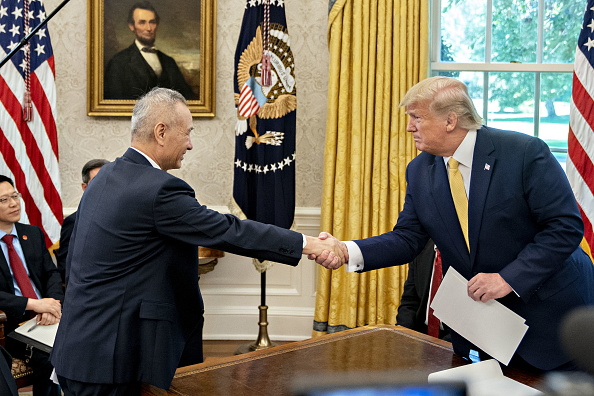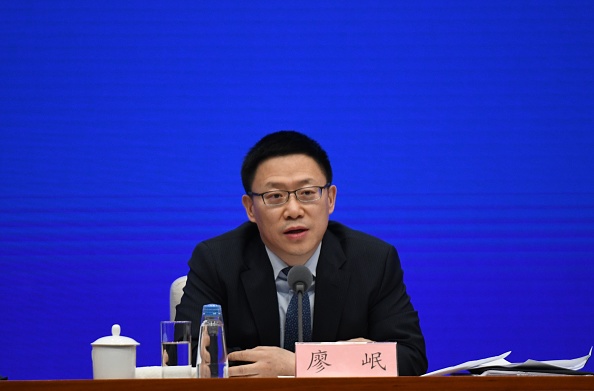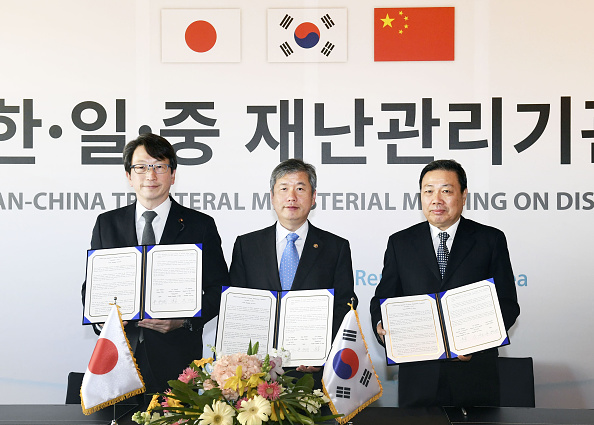
 It's a (Limited) Deal!
It's a (Limited) Deal!On Thursday, China and the U.S. signed off on the terms of a limited Phase One trade deal, which would roll back U.S. import tariffs on $156 billion of Chinese goods, including consumer electronics and toys, just in time for the holiday season. In exchange, China pledged to increase U.S. agricultural purchases by $32 billion, and made preliminary commitments to clamp down on intellectual property theft and further liberalize its financial services markets, according to U.S. Trade Representative Robert Lighthizer. However, it is currently uncertain when the details of those commitments will be released.
New tariffs were scheduled to take effect this Sunday, December 15th, motivating both sides to reach a deal before the deadline hit. The tariffs would have raised prices on over $160 billion worth of Chinese goods, a huge blow to both U.S. consumers and Chinese manufacturers.
Despite the initial deal, not all are happy with the terms of the agreement. Some, such as Senate Democratic leader Chuck Schumer, see the limited deal as an attempt to further delay or outright ignore direct negotiations on some of the thorniest issues that lie between the U.S. and China. "He has sold out for a temporary and unreliable promise from China to purchase some soybeans," Schumer said Friday.
 Economic Tea Leaves
Economic Tea Leaves
It's time to start reading the Chinese economy tea leaves. The annual closed-door Central Economic Work Conference ended this Thursday, outlining key economic policies for the year ahead, including on growth targets, fiscal policy, structural reform, and property. The overall goal from this year's meeting was to maintain stable economic growth, and to that end, President Xi Jinping and other Chinese leaders at the meeting approved a plan that promised more fiscal and monetary measures to boost consumption, infrastructure investment, and employment.
The meeting comes as the ongoing trade war with the U.S. has put significant downward pressure on the Chinese economy and has contributed to a domestic slowdown. Nonetheless, many analysts expect China's growth target for gross domestic product expansion to lower to 6%, which would still mean a doubling of China's economy and income over this decade.
Meanwhile, China's consumer inflation has risen 110% over the last year, due to skyhigh hog prices after an outbreak of African swine fever killed half of China's pig population. Pork is a main staple of the Chinese diet, and since supplies have been disrupted, China has been forced to look to South America and elsewhere to offset the shortage.
 Three's Company
Three's CompanySouth Korea, Japan, and China will hold their annual trilateral summit in Chengdu on December 23rd, and are expected to discuss rising tensions between the United States and North Korea. The East Asian leaders are hoping to boost three-way cooperation to achieve denuclearization of the Korean Peninsula, and hopefully, permanent peace in the region. South Korean President Moon Jae-in will also hold separate discussions with President Xi and Japanese Prime Minister Abe.
North Korea and the U.S. have escalated hostilities in recent days, as negotiations aimed at dismantling North Korea's nuclear and missile programs collapsed. North Korean leader Kim Jong Un has set a year-end deadline for Washington to change its stance in the negotiations, a deadline U.S. officials continue to shun as arbitrary. China's U.N. Ambassador Zhang Jun has implored the United Nations Security Council to ease sanctions on North Korea in order to "head off a dramatic reversal" of the situation.
Starting in 2008, the three East Asian countries agreed to hold annual summits in order to boost regional cooperation, but this hasn't been an easy feat. There have been a flurry of bilateral feuds between the three countries in recent years, ranging from territorial disputes to military disagreements to persisting wartime grievances.
Prepared by China-US Focus editorial teams in Hong Kong and New York, this weekly newsletter offers you snap shots of latest trends and developments emerging from China every week, while adding a dose of historical perspective.
- 2019-12-06 An Arbitrary Deadline
- 2019-11-22 On or Off Again?
- 2019-11-15 Counterweight Critique
- 2019-11-08 "I haven't agreed to anything"
- 2019-11-01 Don’t Hold Your Breath
- 2019-10-25 Weaponizing Diplomacy
- 2019-10-18 Economic Shudders
- 2019-10-11 A “Big Day of Negotiations”
- 2019-10-04 Birthday Celebrations
- 2019-09-28 A World Split in Two?
- 2019-09-20 Another Round
- 2019-09-13 Olive Branch or Olive Twig?
- 2019-09-07 The Unwinnable War?
- 2019-08-31 “Sorry, it’s the way I negotiate”
- 2019-08-23 Tit for Tat
- 2019-08-17 Slowdown Ahead?
- 2019-08-09 Yuan on the Rocks
- 2019-08-02 Ratcheting Up the Crisis
- 2019-07-26 Playing Defense
- 2019-07-19 “Stain of the Century”
